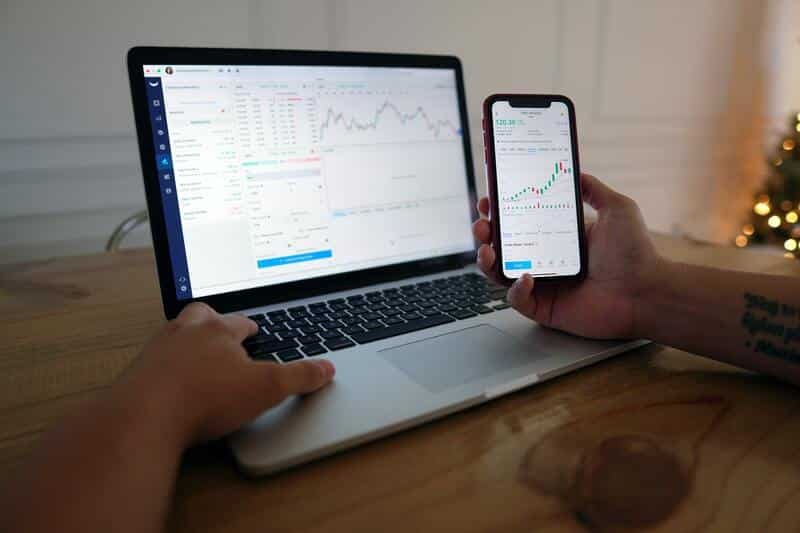In recent years, the trend of buying Vanguard for expats has continued to grow, with more and more individuals looking to take advantage of the opportunities presented by the global investment landscape.
With a growing number of expats seeking to diversify their portfolios, Vanguard’s reputation for low-cost, passively managed funds has made it an attractive option for those looking to invest overseas.
The purpose of this blog is to provide a comprehensive overview of how to buy Vanguard for expats overseas. In addition, this blog will also discuss the pros and cons of each method, as well as the documentation and information required to get started.
If you are looking to invest as an expat or high-net-worth individual, which is what I specialize in, you can email me (advice@adamfayed.com) or WhatsApp (+44-7393-450-837).
We have helped many expats set up Vanguard investments.
What is Vanguard for expats?
Vanguard for expats refers to investment options offered by Vanguard, a large investment management company, for individuals who live outside of their home country.
These options typically include a range of mutual funds and exchange-traded funds (ETFs) designed to meet expatriates’ investment needs.
These funds and ETFs allow expats to diversify their portfolios and invest in various global markets, even if they are located far from home.
Vanguard’s reputation for offering low-cost, passively managed investment options has made it a popular choice for expats looking to invest overseas.
What are the six ways to buy Vanguard for expats overseas?
Vanguard offers several ways for expatriates to invest in its funds while they are living abroad. However, the availability of these options may vary depending on the country in which the expatriate is living, and some options may have restrictions or requirements.
Online Investing
Vanguard offers an online platform that allows investors to purchase and manage investments from anywhere in the world.
The main advantage of online investing is the convenience and accessibility it offers, as it allows expatriates to purchase and manage their investments from anywhere in the world.
It also enables expats to make trades quickly and easily monitor investment performance.
However, online investing also has the potential security risks, as expatriates may be required to provide personal and financial information online.

Brokerage Accounts
Expatriates can open a brokerage account with a firm that offers Vanguard funds and purchase them through the broker.
Brokerage accounts offer expatriates access to a wider range of investment products, including Vanguard funds.
Brokers can also provide personalized advice and support, which can be especially helpful for expatriates who are unfamiliar with the investment process.
However, brokerage accounts can be more expensive than other investment options, as they often charge higher fees and commissions.
Advisor-assisted Investing
Vanguard has a network of financial advisors who can assist with investments, including those for expatriates living abroad.
Working with a financial planner can provide expatriates with personalized advice and guidance, which can be especially important for those who are new to investing.
Advisors can also help expatriates navigate the complexities of international investing and ensure that their investments align with their goals and risk tolerance.
But, working with a financial advisor can also be more expensive as they typically charge fees for their services.
IRA or 401(k) Rollover
Expatriates can roll over their IRA or 401(k) from the US to a Vanguard IRA, which can be managed abroad. It can provide expatriates with a convenient and tax-efficient way to invest in Vanguard funds.
This option can also help expatriates consolidate their investments and simplify their financial planning.
However, rolling over an IRA or 401(k) can also be complex and may require the assistance of a financial planner or advisor.
Institutional Accounts
Institutions such as endowments, foundations, and pension plans can invest in Vanguard funds through institutional accounts.
They can also offer lower fees and commissions compared to other investment options. However, institutional accounts may have minimum investment requirements that are difficult for individual investors to meet.
American Depository Receipts (ADRs)
Vanguard funds may also be available through ADRs, which are securities that represent ownership in a foreign company’s shares but trade like a domestic stock on US exchanges.
ADRs trade like domestic stock on US exchanges, which can make them easier to buy and sell compared to other investment options.
However, ADRs may also be subject to currency risk, as fluctuations in exchange rates may impact the value of the investment.
How does an expat’s residency status impact the process of buying Vanguard funds?
An expatriate’s residency status can impact the process of buying Vanguard funds in several ways.
For one, the taxation of investment income and capital gains can vary depending on the country of residency, and some countries may have tax treaties with the US that impact the taxation of US-based investments.
Some countries may also have restrictions on the type of investments that residents can make or the amount that can be invested. Likewise, the exchange rate between the local currency and the US dollar can also impact the cost of investing in Vanguard funds.
Expatriates may also face challenges in transferring funds from their local bank account to a US-based brokerage or investment account to purchase Vanguard funds.
They may need to provide additional documentation or information to open a brokerage or investment account, such as proof of identity, tax residency, and proof of address.
How do expats go about opening a brokerage account to purchase Vanguard funds?
Start by researching different brokerage firms to find one that offers the investment products and services you need, such as Vanguard funds. Consider factors such as fees, commission structures, and customer support.
Next, you will need to provide personal and financial information to open a brokerage account, such as your name, address, date of birth, and tax identification number.
You may also need to provide proof of identity and residency, such as a passport or government-issued ID.
Once you have selected a brokerage firm, you can apply to open an account by filling out an application online or in person. You may be asked to provide additional information, such as investment goals and risk tolerance.
You will then need to fund your brokerage account before you can start investing. This can typically be done by transferring funds from a local bank account or by wiring money directly from your home country.
Once your brokerage account is funded, you can place an order to purchase Vanguard funds either online, over the phone, or through a broker.

What documentation and information are required to open a brokerage account as an expat?
Expats opening a brokerage account to purchase Vanguard funds will typically be required to provide personal information. This includes your full name, address, date of birth, and tax identification number, such as a Social Security number or an Individual Taxpayer Identification Number.
You will also need to provide a government-issued photo ID, such as a passport or driver’s license, and proof of your current address, such as a utility bill or bank statement.
Financial information is also needed. This may include information about your income, assets, and liabilities, as well as your investment goals and risk tolerance.
You will also need to declare the bank account from which you will be funding your brokerage account.
Lastly, you may be required to provide information about your tax residency status and complete tax forms, such as a W-8BEN or W-9 form.
It’s important to note that the specific documentation and information requirements may vary depending on the brokerage firm and the country in which you reside.
Additionally, some countries may have additional regulatory requirements for foreign investors, such as anti-money laundering regulations or restrictions on the type of investments that can be made.
How does currency exchange impact the purchase of Vanguard for expats?
Currency exchange can significantly impact the purchase of Vanguard for expats.
When expats purchase Vanguard funds, they may need to convert their local currency into the currency in which the fund is denominated. This process can result in currency conversion fees, which can add to the overall cost of the investment.
The value of one currency relative to another can fluctuate over time, which can also affect the value of an investment in Vanguard.
For example, if the value of an expat’s local currency decreases relative to the currency in which the fund is denominated, the expat may receive fewer units of the fund for their investment.
Conversely, if the value of the local currency increases, the expat may receive more units of the fund.
Some Vanguard funds use currency hedging strategies to minimize the impact of currency fluctuations on their returns. This can help reduce the risk of currency exchange impacts on the value of an investment.
Some brokerage firms also offer the option to hold investments in a local currency account, which can help mitigate the impact of currency exchange. However, this option may also result in additional fees or lower returns compared to holding the investment in its original currency.

What are some important considerations for expats to consider when investing in Vanguard?
For expats investing in Vanguard, it’s important to clearly understand your investment goals and risk tolerance, as this will help guide your investment decisions and ensure that your investments align with your overall financial plan.
Expats should also research and understand the tax implications of investing in foreign-based investment products, such as Vanguard funds. This may include taxes on capital gains, dividends, and interest income and may vary depending on the country of residency.
Currency exchange can have a significant impact on the value of an investment in Vanguard. Hence, expats should consider the potential impact of currency exchange and monitor exchange rates to minimize the impact on their returns.
Some countries may also have additional regulatory requirements or restrictions on foreign investments, such as anti-money laundering regulations or limits on the type of investments that can be made.
Expats should research these regulations and restrictions and consult with a financial advisor familiar with international investing to ensure compliance.
Conclusion
In conclusion, it is crucial for expats to have a solid understanding of the various methods available for purchasing Vanguard funds, as well as the associated pros and cons, documentation requirements, tax implications, and currency exchange considerations.
Having this knowledge can help expats make informed investment decisions and ensure that their investments align with their financial goals and risk tolerance.
Moreover, it can also help expats avoid costly mistakes and ensure that their investments are in compliance with local tax laws.
It’s important for expats to take a proactive approach to their investments and to regularly assess and update their portfolio to ensure that it continues to meet their changing needs and financial circumstances.
By taking the time to research, understand the process, and seek professional advice, expats can successfully navigate the investment process and achieve their financial goals.
Pained by financial indecision? Want to invest with Adam?

Adam is an internationally recognised author on financial matters with over 830million answer views on Quora, a widely sold book on Amazon, and a contributor on Forbes.



